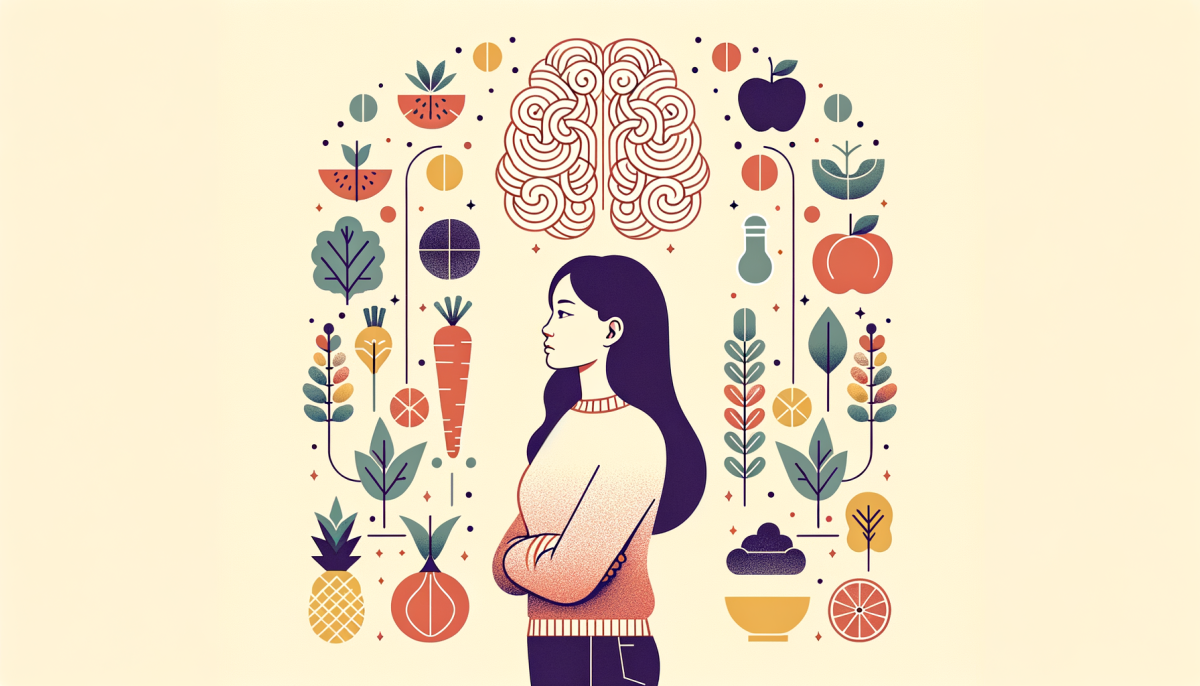Introduction
The intricate tapestry of human health is woven with threads of various hues, each representing a different aspect of our well-being. Among these, diet and mental health are two strands that are often viewed in isolation. However, emerging research suggests a compelling interplay between these two domains, painting a picture of mutual influence and interdependence. This article delves into the fascinating nexus between diet and mental health, exploring how our food choices impact our mood, contribute to mental disorders, and play a pivotal role in our emotional well-being.
Nutritional Impact on Mood

The food we consume is not merely a source of energy; it is a complex matrix of nutrients that interact with our body in myriad ways. Among these interactions, the influence of nutrition on our mood is particularly intriguing. The brain, the seat of our emotions, is an energy-intensive organ that relies heavily on a steady supply of nutrients. Certain nutrients, such as omega-3 fatty acids, B vitamins, and tryptophan, have been found to directly influence mood by modulating the production of neurotransmitters like serotonin and dopamine.
Moreover, the gut-brain axis, a bidirectional communication pathway between the gut and the brain, has emerged as a key player in mood regulation. The gut microbiota, a diverse community of microorganisms residing in our gut, can metabolize dietary components to produce bioactive compounds that can cross the blood-brain barrier and influence mood. For instance, certain gut bacteria can produce serotonin, a neurotransmitter that plays a crucial role in mood regulation.
However, the relationship between diet and mood is not always beneficial. Consumption of certain foods, particularly those high in refined sugars and unhealthy fats, can lead to inflammation and oxidative stress, which have been linked to mood disorders like depression. Furthermore, these foods can disrupt the gut microbiota, leading to a decrease in the production of mood-regulating compounds.
Food Choices and Mental Disorders
The connection between diet and mental health extends beyond mood regulation. There is mounting evidence suggesting that our food choices can contribute to the development and progression of certain mental disorders. For instance, diets high in processed foods and low in fruits and vegetables have been associated with an increased risk of depression and anxiety.
On the other hand, diets rich in fruits, vegetables, whole grains, lean proteins, and healthy fats, such as the Mediterranean diet, have been linked to a lower risk of these disorders. These foods are rich in nutrients like antioxidants, fiber, and omega-3 fatty acids, which can reduce inflammation, improve gut health, and support brain function, thereby reducing the risk of mental disorders.
Moreover, certain dietary patterns, such as intermittent fasting and ketogenic diets, have shown promise in managing mental disorders. These diets can influence brain function and neurochemistry, potentially offering therapeutic benefits for conditions like depression, anxiety, and even schizophrenia. However, more research is needed to fully understand the potential benefits and risks of these dietary approaches.
Diet’s Role in Emotional Well-being
Diet plays a pivotal role in our emotional well-being, influencing not only our mood and mental health but also our stress response, sleep quality, and overall quality of life. Certain nutrients, such as magnesium and B vitamins, can help regulate our body’s stress response, while others, like tryptophan and melatonin, can improve sleep quality.
Moreover, a healthy diet can enhance our overall quality of life by improving physical health, boosting energy levels, and promoting a positive body image. These benefits can, in turn, improve our emotional well-being by enhancing self-esteem, promoting a positive mood, and reducing the risk of mental disorders.
However, it’s important to note that while a healthy diet can support emotional well-being, it is not a panacea. Emotional well-being is influenced by a multitude of factors, including genetics, environment, lifestyle, and personal experiences. Therefore, a holistic approach that includes a balanced diet, regular physical activity, adequate sleep, stress management, and professional help when needed, is crucial for optimal emotional well-being.
Conclusion
In conclusion, the connection between diet and mental health is a complex and multifaceted one, shaped by a myriad of factors ranging from gut health to inflammation. While more research is needed to fully unravel this intricate relationship, it is clear that our food choices can have a profound impact on our mental health and emotional well-being. Therefore, adopting a balanced diet rich in nutrient-dense foods can be a powerful tool in promoting mental health and preventing mental disorders. However, it is equally important to remember that diet is just one piece of the puzzle, and a comprehensive approach that addresses all aspects of health is essential for optimal well-being.





